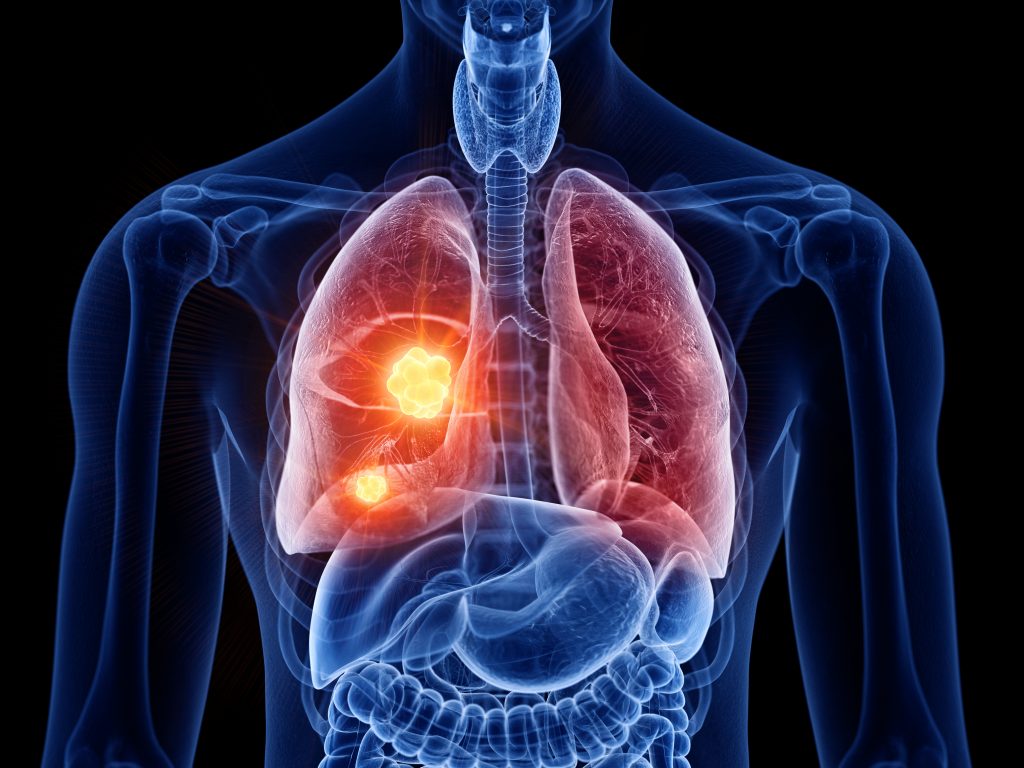The genetic mutations caused by repetitive exposure of lung cells to alpha particle radiation from radon will drive cancer formation. Depending on the dose, it can take 1-3 decades before lung cancer is diagnosed.
- Radon is classified as a category 1 carcinogen (cancer-causing agent) by the International Agency for Research on Cancer (IARC). Category 1 is only assigned to carcinogens that research and medicine have established to cause cancer in humans and animals with no doubts whatsoever.
- Like many environmental lung carcinogens, such as tobacco or asbestos, it is repetitive exposure to radon that is relevant to increasing the relative lifetime risk of cancer.
- Cancer occurs when genetic mutations impact how a cell grows, divides and/or spreads. When more genetic mutations accumulate over time, the risk of a cell becoming cancer increases.
- The chances of getting radon-induced lung cancer depend on the dose and duration of exposure, with higher exposures for longer periods meaning more genetic mutations and greater cancer risk. Dose-for-dose, particle radiation causes a lot more genetic mutations than simple X-rays.
Radon is the 2nd leading cause of all lung cancers and is the primary cause of the disease in never-smokers. In Canada, this has accounted for 110,000 cases since 2001 –an enormous burden of disease.
- The connection between residential radon and lung cancer was proven directly by several large studies each involving >10,000 lung cancer patients and another >10,000 healthy controls.
- The data indicated that there is a ~16% increase in relative lifetime risk of lung cancer for every 100 Bq/m3 of long-term radon exposure.
